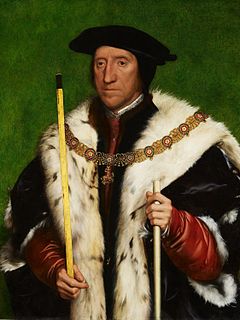A Quote by Christian Smith
Evangelicals come from all ethnic and racial backgrounds, but nearly 90 percent of Americans who call themselves evangelicals are white.
Quote Topics
Related Quotes
Trump's blatant racism and demonization of Muslims, Mexicans, and immigrants also serves as a foil for white evangelicals. By othering these groups, Trump allows evangelicals to persist in their belief that white Anglo-saxon Protestantism is the default for true American Christianity and is best suited to lead America as a 'Christian Nation.'
I owe my nurture to evangelicalism. The evangelical wins hands down in the history of the church when it comes to nurturing a biblically literate laity. When we think of evangelism, evangelicals are the most resourceful, the most intrepid, and the most creative. But evangelicals themselves would say that they have never come to grips with what the whole mystery of the church is.
McCain courted in 2008 what I would call 'fringe' evangelicals, in part because evangelicals were skeptical of his commitment to values voters. McCain's embrace of Palin came after having to scuttle endorsements from John Hagee and Rod Parsley, charismatics who believed in Armageddon and fiercely supported Israel.
The traditional spokespersons for the Evangelicals, such as Chuck Colson and James Dobson, have become alarmed about this drift away from the 'Family Values' issues that they believe should be the overwhelming concerns of Evangelicals. They have expressed their displeasure in letters of protest circulated through the religious media.
In 1980, evangelicals overwhelmingly elected a candidate who was a known womanizer when he was in Hollywood. He would be the first divorced president in U.S. history. His name was Ronald Reagan. And when evangelicals voted for Reagan, they weren't endorsing womanizing. They weren't endorsing divorce. They were endorsing Reagan's policies.
I think we're seeing in the wake of the last election that evangelicals - especially young evangelicals - are no longer inextricably linked to the Republican party. Even at Liberty, there's now some ideological diversity with respect to politics. Last fall, I saw a Facebook group called "Liberty Students for Obama." It had 4 or 5 members, but still...
There is not one particular moment that can account for the shift from the social issue concerns of 19th-century evangelicals into the state of American evangelicalism today. Some historical moments are telling. The rise of biblical criticism in the 19th century forced evangelicals to make choices about what they believed about the gospel.
The assumption that the larger culture agrees with Christians on values issues led to evangelicals' minimizing the theologically distinctive aspects of Christian witness. It also set up evangelicals to be disappointed when the culture did not turn out the way many expected it to turn out. So our response ought to be that we are always, in every culture, strangers in exile.




























